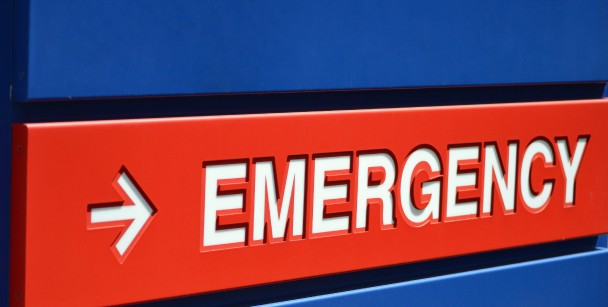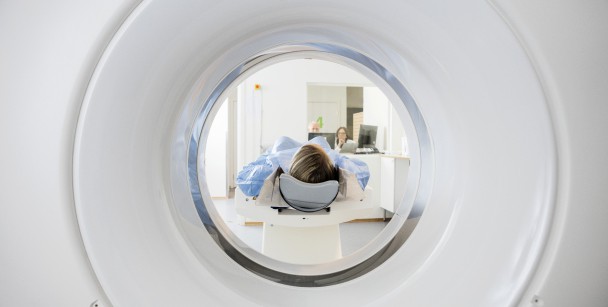Kidney stones are an often painful experience that can be terrifying if you’re not sure where the pain is coming from. They occur when your kidney forms a crystal-like deposit out of elements in your urine (such as calcium and amino acids) that it then has to pass through your ureters (the thin tubes that carry urine from the kidneys to the bladder) and urethra (the passage from your bladder out of your body). There are many different items you need to consider before going to the er for a kidney stone infections.
Depending on the size and structure of the kidney stone, this can be an exceptionally painful process. The stones can start small and grow if they’re not expelled from the body and can reach sizes equal to the kidney itself if left unchecked. Therefore, if you’re starting to notice unexplained pain in your kidneys radiating down to your bladder, it may be worth double-checking any other symptoms you have. If a kidney stone would explain those symptoms and it doesn’t seem to be passing on its own, seek medical attention.

When Should I Go to the ER for Kidney Stone Pain?
The biggest reason why people wind up going to the emergency room for a kidney stone infection is the pain itself. Considering some women have even said that the pain of a kidney stone is worse than the pain of childbirth, it’s unsurprising that it would encourage people to seek medical attention. That pain is usually caused thanks to the stone blocking urine from leaving the kidney and passing to the bladder, which leads to painful swelling in the kidney itself. If left unchecked, this can cause bloody urine, infection, and numerous other complications.
However, some other symptoms may indicate that a trip to a medical facility is necessary, such as:
- Blood in your urine
- Noticeable difficulty urinating
- Cloudy urine
- Constantly and desperately needing to urinate, but only being able to expel small amounts at a time
- Gravel in your urine (which are small kidney stones)
- Urine that smells foul
- Pain and burning during urination
- Any signs of infection (fever, chills, etc.)

How Long Do You Stay in the Hospital for a Kidney Stone?
Your hospital stay will depend on the severity of your case of kidney stones. If you’re able to pass it without surgery or shock therapy (which is sometimes used to crush the stones into smaller size so they can pass more easily), you may wind up staying in the ER for up 24 hours. While you’re at the hospital, you’ll be given plenty of fluids and possibly an anti-inflammatory and painkillers to make the process more bearable. Ideally, the fluids will flush out the stones and you’ll find relief.
If not, however, your doctor may run a series of tests to see if further action is necessary. In the most severe scenario resulting in kidney stone removal surgery, you would only need to stay in the hospital for a maximum of a couple of days afterward, though many people are able to leave within a day after surgery. Your doctor will likely only recommend surgery if shock therapy doesn’t work or if the stones are simply too big to be passed naturally, which they would determine through a CT scan.
Can They Treat Kidney Stones at Urgent Care?
Urgent care facilities may be appropriate for very mild cases of kidney stone infections that just require assistance with fluids, anti-inflammatories, and painkillers. However, if the situation worsens, the urgent care doctors will likely tell you to go to the emergency room for further care. Generally speaking, those who have a history of kidney stones will likely prefer to remain at home while they pass the stones unless their symptoms worsen, in which case they’ll go straight to the emergency room.
Because untreated kidney stones can yield such damaging results, it would be best to go to the emergency room instead of urgent care if your symptoms are bad enough to warrant medical attention.

What Happens if Kidney Stones Go Untreated?
If you ignore or fail to recognize the symptoms of a kidney stone and are unable to pass it normally, you may not get treatment for it before the stone causes further problems, including:
- Damage to the ureters
- Damage to the kidney
- Infection
- Increased size of the stone until it can only be removed surgically
- Inflammation and swelling in the kidney
- Obstruction of blood flow to the penis for male-bodied individuals
Since kidney stones can usually be treated quite easily if caught early, it’s best to seek treatment as soon as you start noticing unusual back pain and difficulty urinating. Drink an abundance of water and monitor your symptoms, but don’t be afraid to seek medical attention if the pain worsens or your symptoms don’t improve in a reasonable time frame.
If you’re experiencing lower back pain that may be caused by kidney stones, do not hesitate to go to one of our four convenient locations. With board-certified doctors and registered nurses, Village Emergency Centers provides the very best in medical care all without the wait. Visit us online to learn more or check-in!
